The MSU School of Packaging, established within the College of Agriculture and Natural Resources as the first of its kind in 1952, is the largest packaging program in the country, with more than 600 students each year and 10,000 alumni worldwide – graduating 40 percent of all the packaging professionals in the United States.
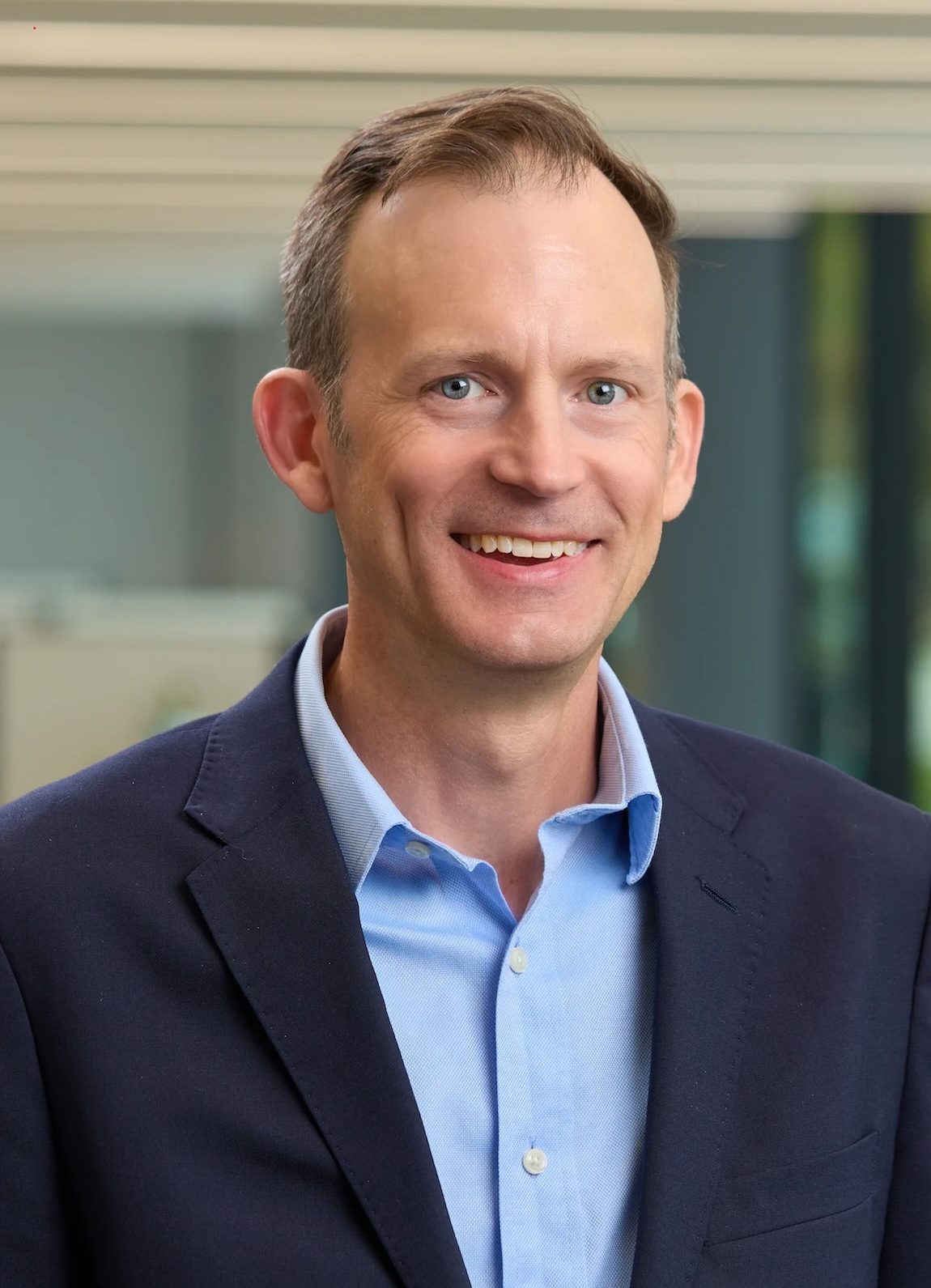
Under the leadership of former School of Packaging director, and current CANR Interim Dean Matthew Daum, the school completed a comprehensive renovation supported by donations totaling over $10 million in April of 2023. Formal planning is currently underway for a second major expansion – a $25 million investment that will double the size of the building and significantly increase research capacity, creating space for more faculty and graduate students.
“The School of Packaging has established itself as a model of success, and our outstanding faculty’s work supports the global packaging industry and improves lives,” Daum said. “We’re successful here because we attract top-tier faculty, whose curiosity and dedication fuel long-term solutions in areas like sustainability, profitability and environmental impact.”
Eva Almenar
- Eva Almenar, Ph.D., is a professor and expert in food packaging with a focus on fresh produce packaging.
- She collaborates with faculty at MSU and abroad to develop packaging systems that “extend the shelf life, quality and safety of food using novel, sustainable packaging.”
- Michigan Soybean Committee-funded research examines potential of food packaging material developed from the byproducts of soy oil.
- She has led 15 projects funded by industry focused on developing and/or validating novel packaging to extend food shelf life.
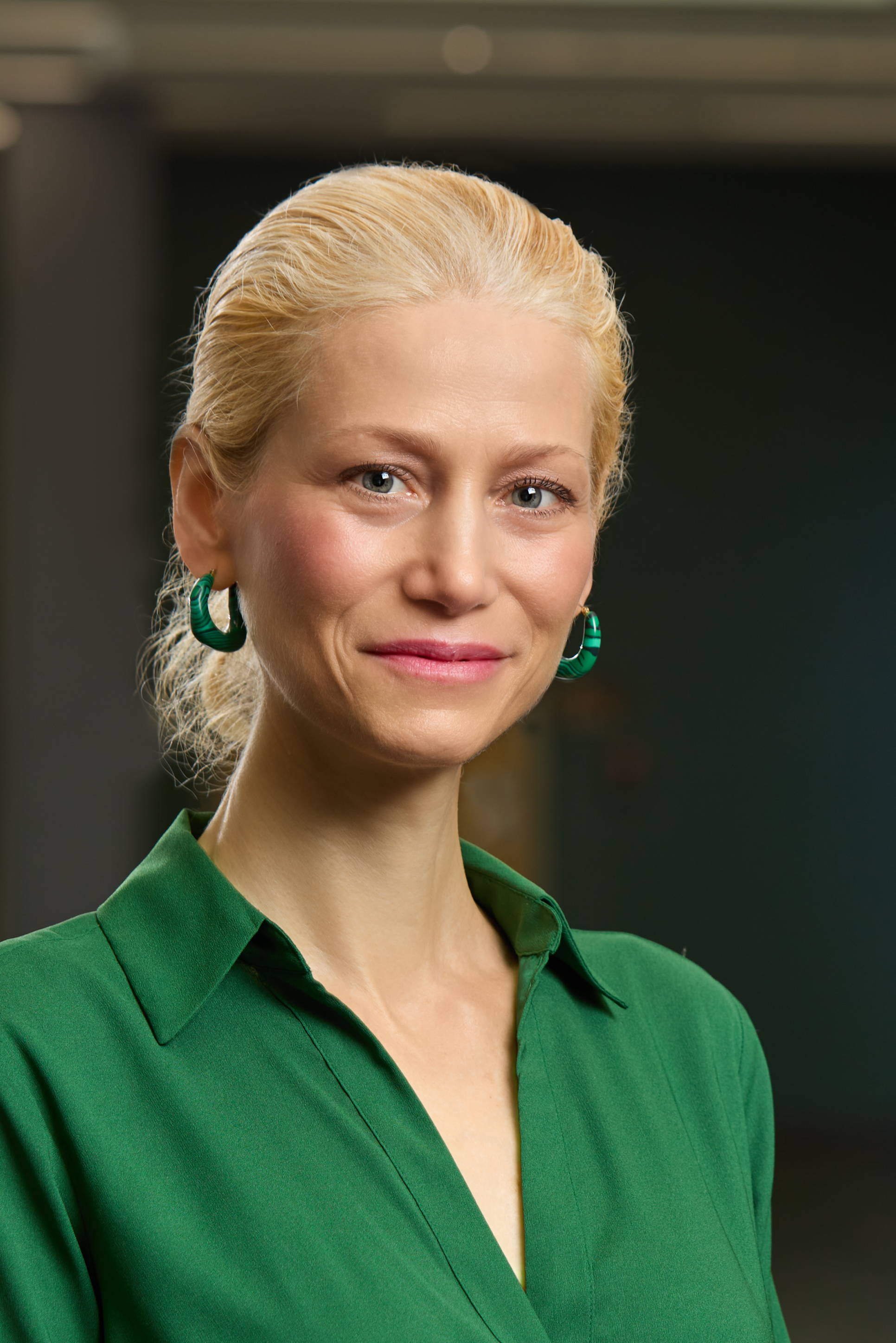
Almenar received her Ph.D. in 2005 from the Institute of Agrochemistry and Food Technology-Spanish Council for Scientific Research (IATA-CSIC) for her work in active packaging. Soon after, she came to MSU on a two-year research fellowship, working alongside Rafael Auras, Ph.D., with the intent on returning to her home country of Spain to start her research career.
“My idea was to stay for two years and go back to Spain,” said Almenar, who previously served as chair of the Food Packaging Division of the Institute of Food Technologists (IFT) and of the multi-state research project S-294: Quality and Safety of Fresh-cut vegetables and fruits. “But while I was here doing my post-doc, there was an opening for teaching, and they asked me if I wanted to teach. I loved it here, so I said, ‘of course, I love teaching.’ Then the school needed a produce packaging expert, and that was pretty good from my point of view, because of course, that is what I like to do. So, I applied to that position and was selected in 2008, and I ended up staying at MSU for almost 20 years.”
MSU’s School of Packaging was the perfect place to practice her collaborative, multi-faceted research and outreach program, Almenar said. Over the course of her career, she has worked with produce growers, commodity groups, plastic suppliers, and packaging equipment suppliers from different countries around the world.
“MSU is wonderful because we have so many experts in so many different areas of expertise. That is what makes our department and our university unique,” she said. “My goal is to extend the shelf life, quality and safety of food with a focus on produce using novel, sustainable packaging, and through that, I get to work with specialists at MSU on novel materials and technologies, market adaptability, food safety and security and even look at the consumer aspects.”
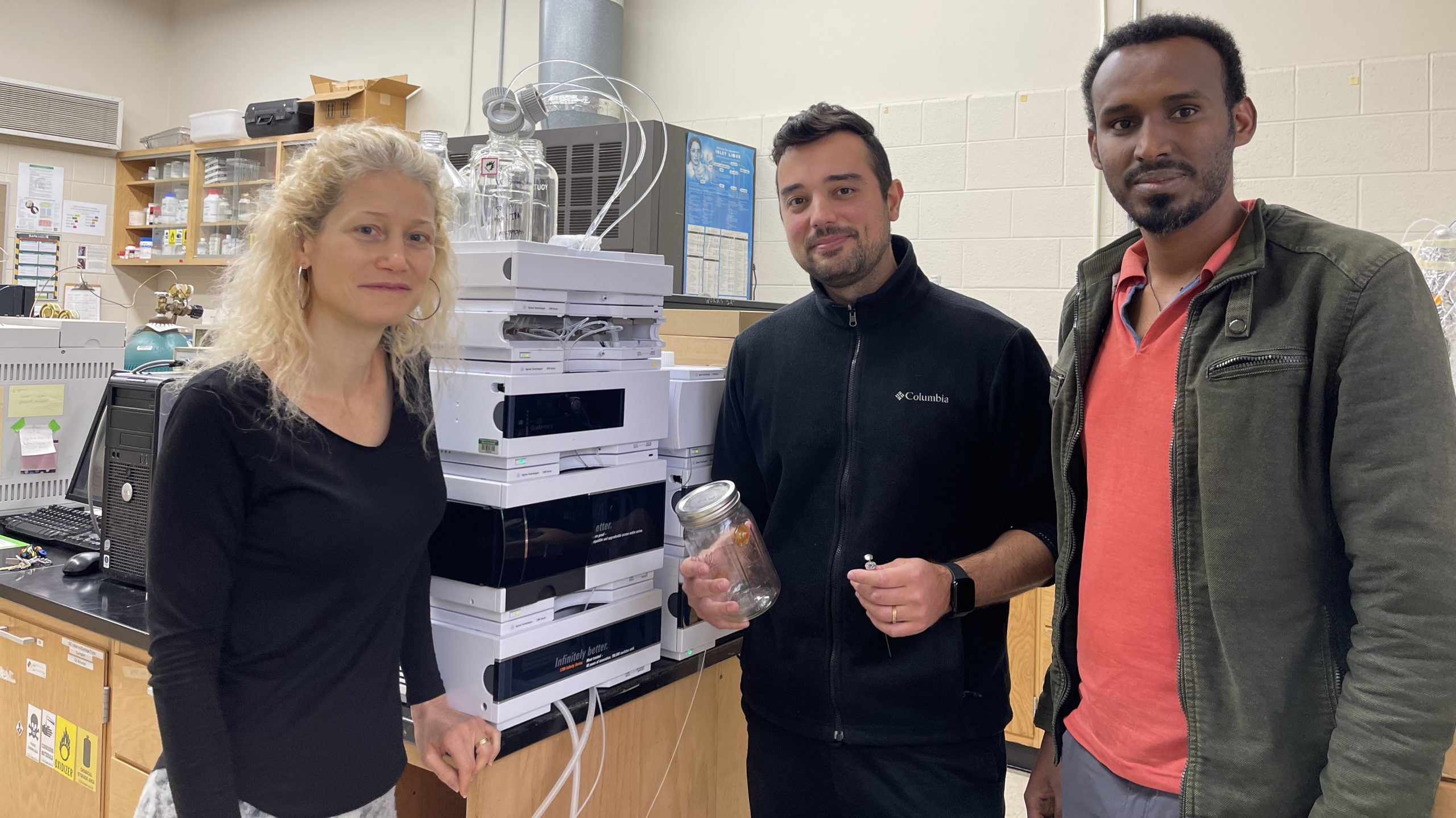
Almenar works with programs and organizations around the country to enhance her program’s impact. She is a collaborator for the Great Lakes Latina/o Farmers Program which provides training for first- and next-generation Latino/a farmers in Michigan, led by MSU Entomology professor David Mota-Sanchez. She is also a collaborator of the WorldTAP International Food Safety short course. In recognition to her dedication, she has received the “Service Award” by the Michigan State University International Food Safety Training and Capacity Building Program.
Almenar’s international projects vary from “training the trainer” in India to co-leading of a project performed in Russia and USA to improve the handling and packaging of fresh frozen legs quarters of turkey and chicken for the global market.
Rafael Auras
- Rafael Auras is a professor and the Amcor Endowed Chair in Packaging Sustainability.
- Discoveries in his lab led to the development of a sustainable alternative to develop more biodegradable petroleum-based plastics.
- Auras led the publishing team who developed the widely used packaging textbook, Life Cycle of Sustainable Packaging: From Design to End of Life.
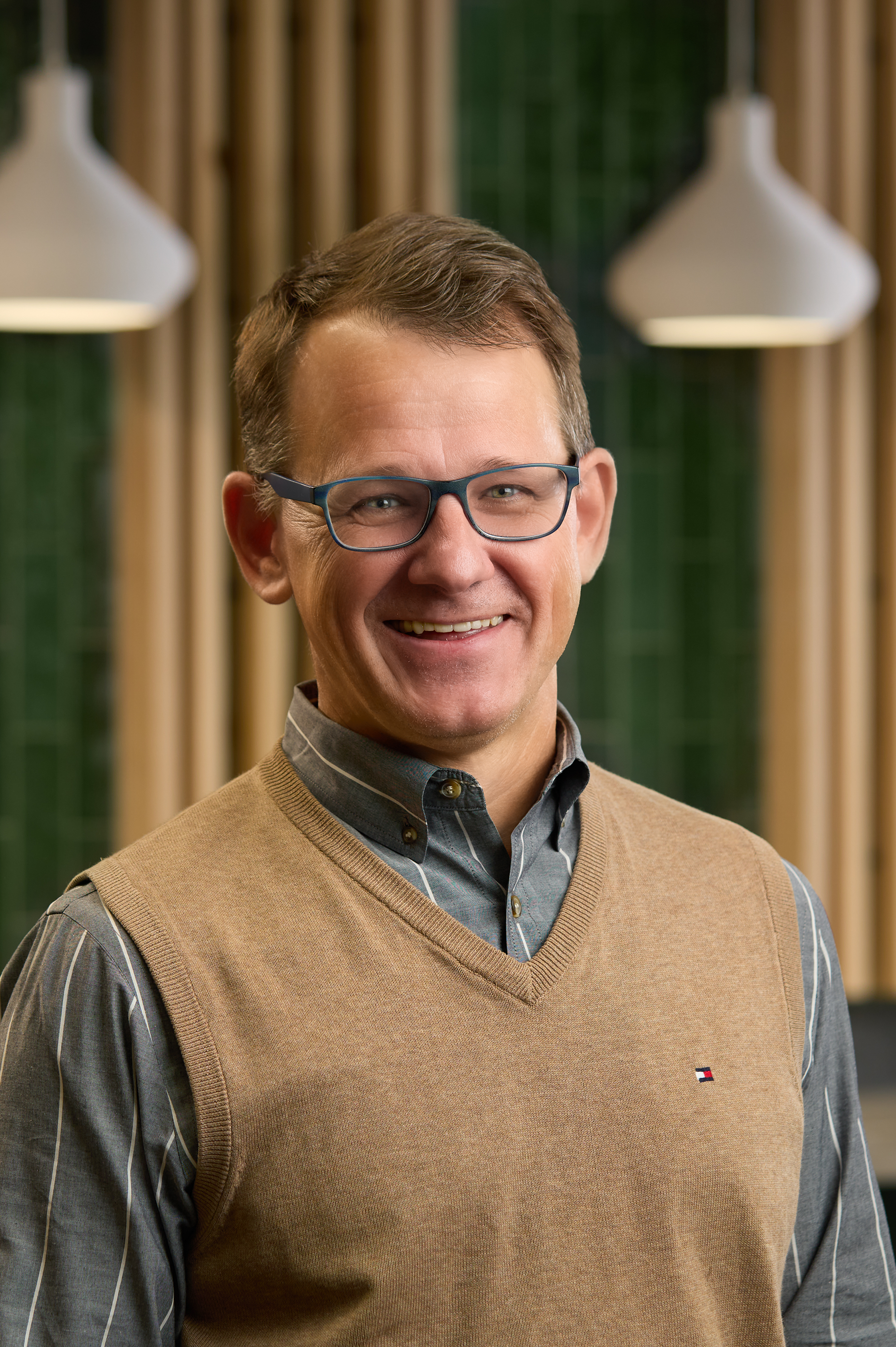
Auras earned his undergraduate degree in chemical engineering and a master’s degree in Materials Science and Technology in Argentina, before coming to MSU to earn his Ph.D. in packaging. He felt MSU provided the resources and research collaboration required to maximize the impact of areas of interest and expertise.
“I was interested in food science and interested in material science, and I liked the interaction between those things. At that time, I was in Argentina, and I asked myself, “what do I do with this? How do I apply my knowledge?’” Auras said. “Packaging came on my radar as that answer, and if you want to do Packaging, the place to train yourself and the place to do your research is MSU. So, I came to MSU for my Ph.D. and postdoc and was fortunate enough to get offered a position in 2004.”
In addition to his lab’s discoveries on biodegradable and compostable materials, Auras has contributed to studies aimed at making plastic packaging more recyclable and partnering with NASA on packaging that preserves or increases food quality and shelf-life but is composed of bio-based, biodegradable, compostable materials.
Auras takes great pride in his teaching role at MSU and said one of his greatest achievements so far is publishing Life Cycle of Sustainable Packaging: From Design to End of Life. The textbook delivers an authoritative and accessible explanation of the role played by packaging in sustainable development and the circular economy.
“After you have been at MSU a while — an institution that has been around making an impact since 1855 and will be here for many more to come — you realize that you’re just a transition period for a much greater entity. So, the best job that I think that I can do is share what I have learned,” Auras said. “I feel rewarded when my students are recognized for excellent work, not only in the U.S., but around the world. I have trained many faculty and many professionals that now are changing the field. I am just one person that can change one thing, but my students can all change many more things.”
Laurent Matuana
- Laurent Matuana, Ph.D., is professor and associate director of the MSU School of Packaging.
- Matuana holds five U.S. patents for wood-plastic composite technologies, including the development of an entirely new class of materials – wood-plastic composites.
- His current USDA-funded project is examining alternatives to high barrier multi-layer plastic packaging designed to extend food shelf life and for easier end-of-life recyclability.
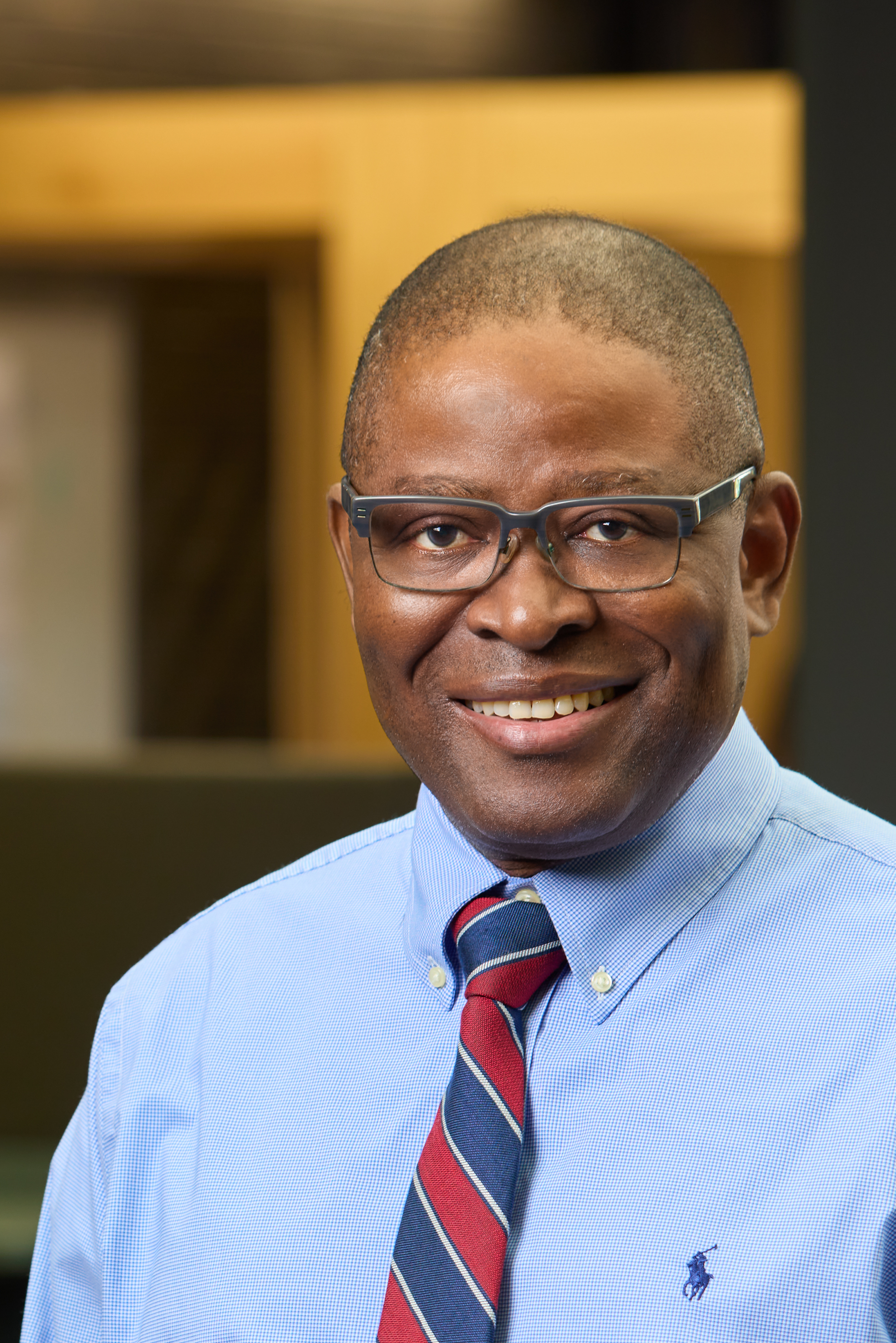
Matuana’s research focuses on processing bio-based materials, with emphasis on the use of natural and renewable plant resources for the development of sustainable, high-performance products for packaging and other applications.
Matuana began his research using wood fiber to augment PVC plastic as a Ph.D. student at the University of Toronto. His efforts to add value to underutilized wood species yielded an entirely new class of materials – wood-plastic composites – that has become widely used in the construction and automotive industries.
“I contributed to the scientific knowledge that led to the commercialization of these materials the way we know it today, so to see that material become something we use on a daily basis is very rewarding in my career,” said Matuana, who came to MSU in 2002 as a member of the Department of Forestry studying value-added materials before moving into the School of Packaging in 2010.
Matuana is a Fellow of the Society of Plastics Engineers (SPE) as well as of the International Academy of Wood Science (IAWS) and is recognized for work developing microcellular foam materials, which are incorporated into the composites deck to reduce their weight and enhance their impact resistance. Together, these materials have resulted in durable, easily fabricated, cost-effective and attractive products that do not require expensive wood treatments using toxic chemicals.
Matuana’s most recent funding comes from the U.S. Endowment for Forestry and Communities and the United States Department of Agriculture Forest Product Lab in Madison, Wisconsin. A research team is examining alternative to multi-layer plastic packaging designed for easier end-of-life recyclability. The team is using cellulose nanomaterials – crystal-like substances inserted into single-layer film – that have shown ability to provide barriers for water and oxygen, increasing food shelf-life and simplifying the recycling process.
Qiang Yang
- Qiang Yang, Ph.D., is an assistant professor focused on cellulosic material
- Current NSF and USDA-NIFA funded research is aimed at reducing the environmental impact of the process that separates cellulosic fibers from wood.
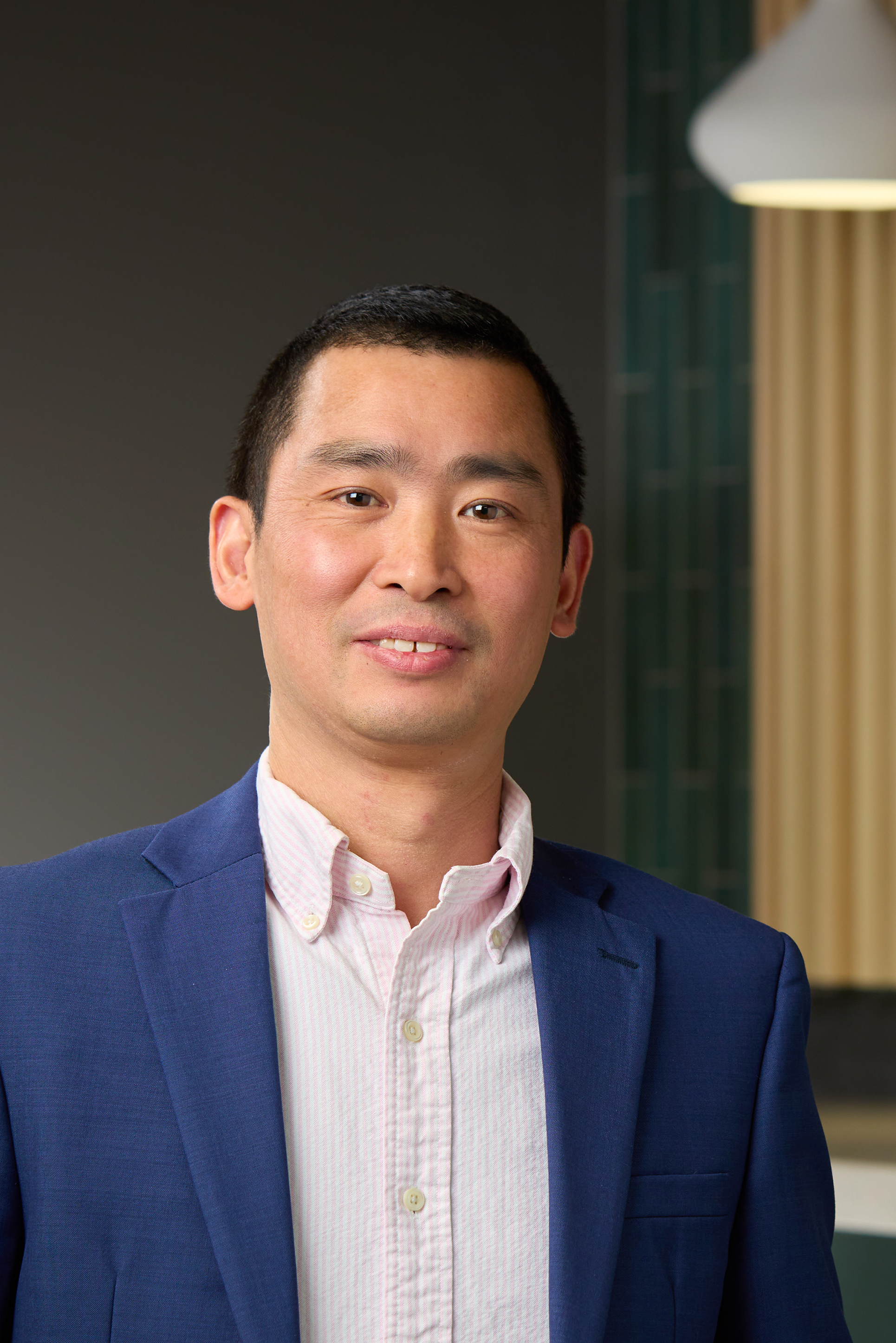
Yang joined the MSU faculty in 2022 and his research program on cellulosic material, sustainable cellulosic packaging, and active/intelligent cellulosic packaging is developing novel technology to make cellulosic packaging production more efficient.
“We developed technology that can separate the fiber using much less energy input and also eliminate the environmental impacts of fiber separation in the development of cellulosic-based packaging,” said Yang, who was previously a faculty member at Western Michigan University. “Our goal is challenging the pulp industry to use new chemicals and novel practices that make cellulosic packaging more sustainable and processes that result in no air pollution and water pollution.”
Yang’s lab explores low-cost cellulose and cellulose nanofibers created from wood for low-cost packaging; novel cellulosic films, foams, and aerogels; reuse of cellulosic-based packaging materials; lignin-based coatings and cellulose nanocrystal-based inks and conversions of unrecyclable packaging materials to fuels and chemicals.
This story was published by the College of Agriculture and Natural Resources.
Is your company interested in working with MSU’s expansive team of packaging experts? Click Here.
About the MSU Innovation Center:
The MSU Innovation Center combines research partnerships, technology transfer, and startup support for MSU faculty who aim to see their research applied to make the world a better place.
Composed of Business Connect, MSU Technologies, and Spartan Innovations, the MSU Innovation Center aims to amplify the impact of faculty research and drive economic growth while positively impacting society to solve real-world challenges with cutting-edge ideas.
Through mutually beneficial, long-term partnerships with the private sector, we connect MSU faculty with companies for corporate-sponsored research collaborations. We also play a key role in facilitating the commercialization and public use of technologies and copyrightable materials, moving MSU’s innovations from the lab to the marketplace. Importantly, we provide significant support for faculty entrepreneurs in establishing startup companies based on technologies developed at MSU.

